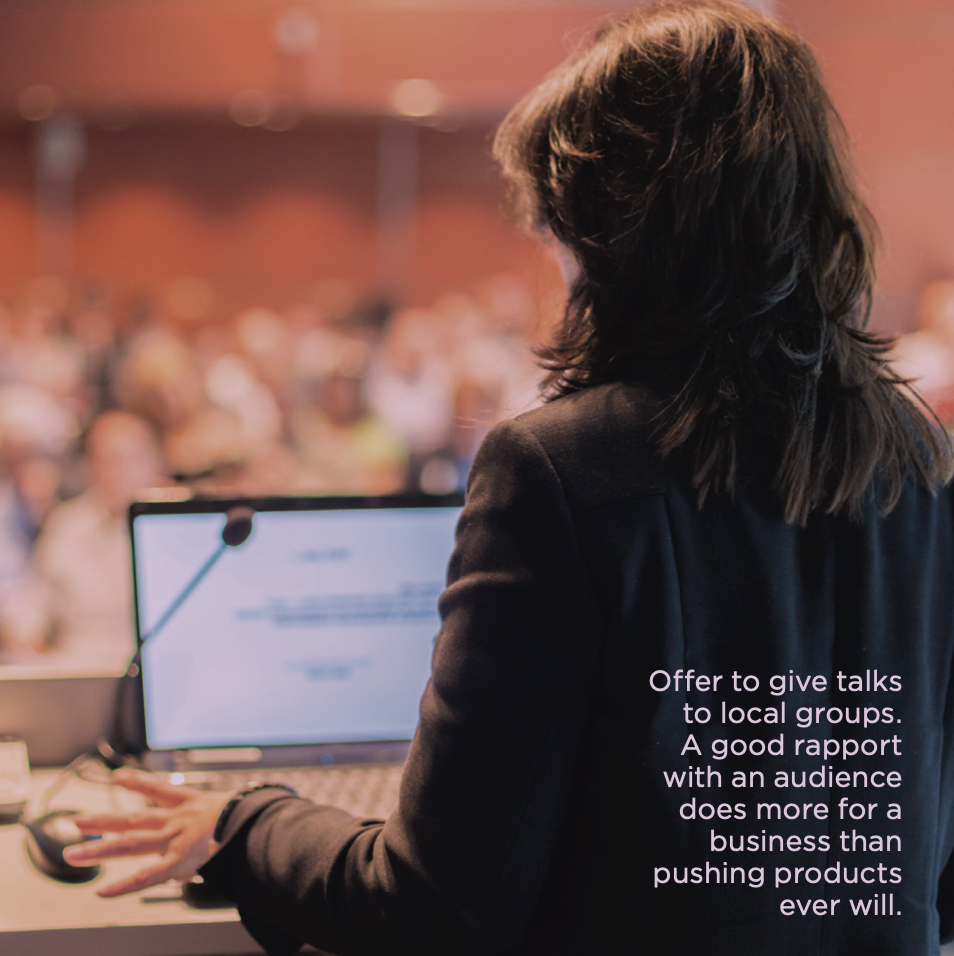Look local Bricks and mortar retail has one big advantage over online - a local community to market to, says Adam Bernstein.
Being able to draw on customers that can come into store, pick up and examine products is something that web traders can never do.
Physical retailers also have the ability to satisfy instant needs - the essential item needed for tomorrow’s show - making them well placed to make a sale.
Retailers just need the opportunity to talk to potential customers. So how best to engage with the community?
OFFER ADVICE
First off, consider the free options, the likes of Facebook and LinkedIn, as well as groups in the locality.
Most think of Facebook as a conduit to share pictures, videos and gossip. That may well be the case, but bear in mind that a good number of potential customers also use the platform to keep abreast of what is relevant to them.
The advice here is to construct - and maintain - a good Facebook presence and at the same time, watch (join) village or town-based Facebook pages. Clearly each will have its own rules on advertising, but well-placed messages can work wonders, especially if they come via a page member who posts a link to your business.
Be careful not to irritate group members with overly frequent or irrelevant posts. That said, incorporate tactics such as entering those who use the ‘share’ and ‘like’ buttons on Facebook posts into a competition to win a free product. If you do offer products, use time- limited or value-added offers, such as free upgrades, to generate a sense of urgency to buy.
“Be seen as someone who gives to the community.”
Seek to use location targeting on Facebook. Here you’re trying to put your content - whatever it may be - in front of those in your locality. While this involves some cost, at least it’ll be targeted to the area you serve.
Allied to this, don’t ignore the need for a website - not everyone is on Facebook. An actively trading site is not critical, but some form of online presence is - else customers will not know of your existence. For this reason, use location targeting via Google Adwords in addition to that on Facebook.
GO FOR GROUPS
Local groups are another potential source of new business; so see if there are any riding clubs or Pony Club branches where you can offer advice. Use it as a soft-sell with seasonal tips for owners and riders. Talk about common problems and mistakes when caring for horses.
Schools, voluntary organisations such as Round Table, Rotary, business breakfast clubs and others are another way to propagate a business among the locality.

But wherever you visit and whomever you talk to, let the advice do the work here - a good rapport with the audience will do more for the business than pushing products ever will. Put yourself in their shoes - what would you want to know?
And if you have time, join a local chamber of commerce or your parish or town council. Be seen as someone who gives to the community; the more networking you do, the better your reach.
A solicitor once said that he never turned down a good funeral. He wasn’t ‘ambulance chasing’,but rather making the point that he had no idea where an event would lead, no matter how awkward it was.
TIE UPS
Can you organise a tie up with another organisation or event to cross-fertilise businesses? Just as a local ale and cheese shop could partner with a music venue to host a beer and music festival (the venue benefitting from the footfall, and the suppliers putting their goods before a new audience), could you work with a local show centre and offer a prize which can be publicised in the local paper?
“Don’t ignore the locals in favour of fighting online.”
Look at Apple’s example - it offers ‘play areas’ for children and discounts for those in education aimed at getting users hooked on Apple products.
In a similar vein, could you sponsor a local competition? Organisers are always keen to have cash, vouchers or product as prizes in return for mentions in the programme, around the arena and over the public address.
MAKE FRIENDS
Make friends with local journalists. This takes a little time, but you could help them out with a decent image that they can use (with attribution of course), a story of interest which has nothing to do with your business, or maybe you could just be someone to have a coffee with - after all, people buy people. Aim to do something newsworthy that gives the journalist a reason to get you (and the shop) in print.
PR can be a very good, cost-effective option. The local press, radio, online publications and even podcasts love to feature local businesses as they thrive on feel-good stories.
GET TEXTING
Consider SMS marketing. Clearly this requires customer consent and an ability to know when not to not burden customers with too many messages. But used correctly, you could send customers a short text to alert them of a sale, or a hard-to-get item that’s just come into stock.
This form of local marketing is great for bricks and mortar businesses that want to drive in-store footfall. Those who want to contact their customers in real time can also benefit. Even better - it’s more responsive than email.
WELL SERVED
But at the end of the day, your best method of reaching local customers is to offer excellent customer service so that your trade grows mostly on recommendations.
According to an October 2018 House of Commons report Retail sector in the UK, web trade stood at just 5% in 2008 and now makes up 18% of all retail sales. But that means that 82% of sales are in physical stores.
And if small businesses are the backbone of a community, then customers are the heart of small businesses. As such, it is vital that your business focuses its efforts on providing the best customer experience possible.
THE FIGHTBACK BEGINS
Offer incredible customer service, convenient operating hours, a friendly atmosphere, products people want, the best possible pricing - and begin the fightback.
Don’t ignore the locals and passing trade in favour of fighting onlline. Not only are they your bread and butter trade, they can also be the best advert you’ve ever had - at virtually zero cost.
About the author:
Adam Bernstein is a business writer with 25 years’ experience.
ETN | Better Retailing - August 2019

















